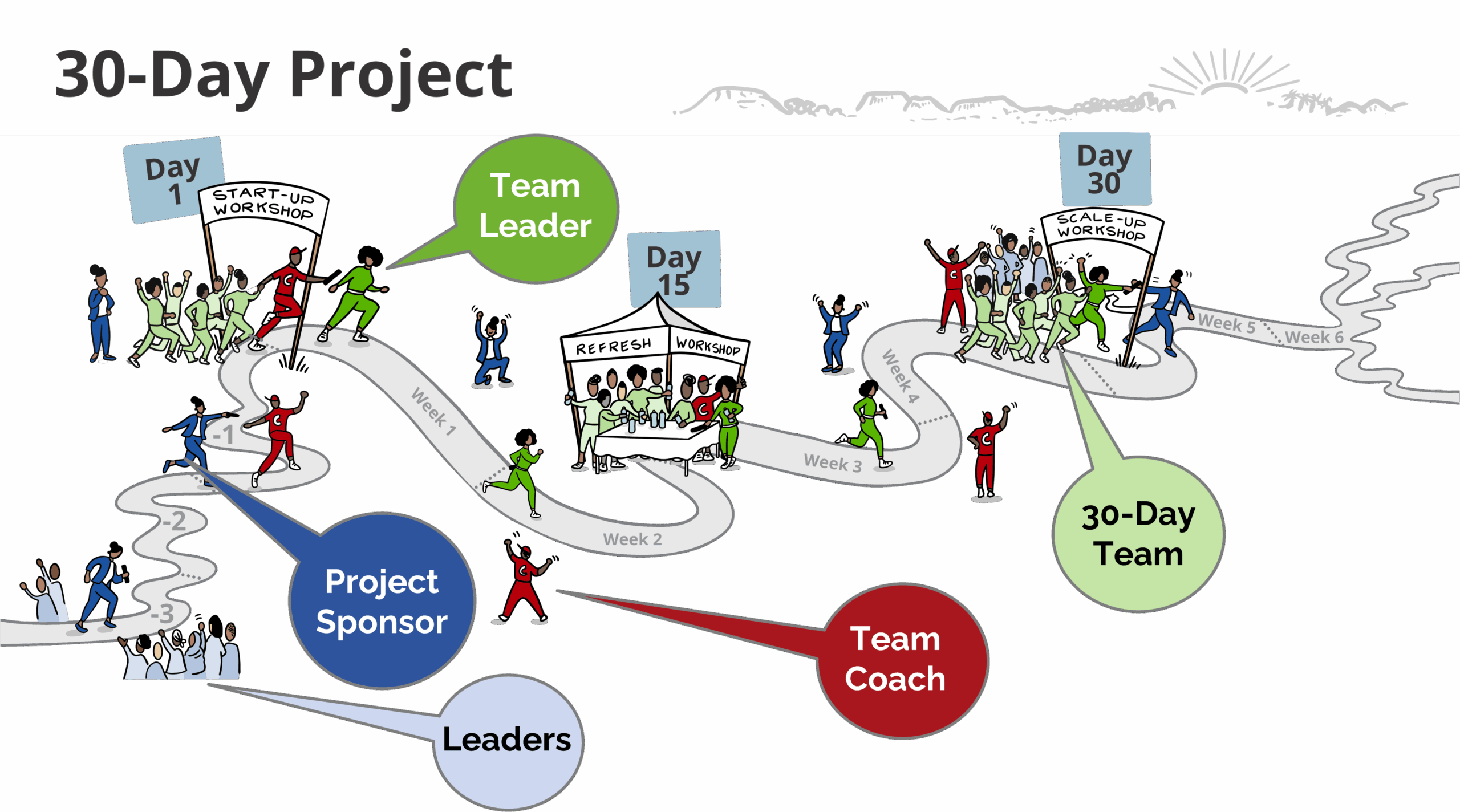
GBVF Maturity 30-Day Project
The purpose of this Learning Programme is to help you organise and support a rapid (30-day) project that aims to improve the way your organisation performs in addressing Gender-Based Violence and Femicide (GBVF). We refer to this project as the “GBVF Maturity 30-Day Project,” or simply the 30-Day Project.
Colleagues in your organisation have completed a GBVF organisational maturity survey. You will help leaders use this survey to decide on a focus area of improvement, and then activate and support a team in your organisation to make a real improvement in 30 days!
The 30-Day Project can be viewed as a relay race, as shown in the diagram below. You are shown in red, as the Team Coach.
The 30-Day Project as a Relay Race

The Weekly Support

You will receive two WhatsApp “nudges” each week for the duration of the programme. On Thursday morning, the “nudge” will describe the work you will do to support the team or the leaders during the coming week. For example, facilitating a discussion or a workshop. And on Monday morning, the “nudge” will remind you of the tasks of the week, with helpful tips on these.

The WhatsApp nudges will include links to Learning Deep Dives. These are online learning units that will help you prepare for the tasks outlined in the nudges. We highly encourage you to make time to go over these. The Thursday nudge will also include a link to a learning assignment. This will be your chance to share with us insights and accomplishments of the week, and also questions about the coming week.

Every Friday there will be an Guru Hour Zoom call. One or more of the World of Impact experts will host the call. Please feel free to dial in, especially if you have questions about the Thursday nudge. It’s also a chance to meet peers from other organisations and share with them your triumphs and your worries.


